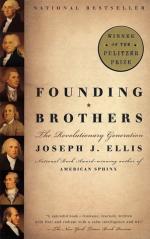|
This section contains 1,854 words (approx. 5 pages at 400 words per page) |

|
Chapter 3 Summary
On February 11, 1790, a Quaker delegation petitioned the House of Representatives to end the African save trade immediately. Several Southern representatives rose to oppose them— James Jackson of Georgia apoplectically, and William Loughton Smith of South Carolina Constitutionally. No action could be taken until 1808. James Madison asked his colleagues to allow the petitions to run their course quietly. Next day, however, the Pennsylvania Abolition Society petitioned anew, declaring slavery and the slave trade incompatible with the values of the American Revolution and challenged the claim that the Constitution prohibited action. The "general welfare" clause was a way around it. Benjamin Franklin had signed this petition, and this guaranteed that the matter could not be assigned to legislative oblivion. Consideration of the assumption and residency questions was set aside for a public debate that for the first time spoke openly about slavery — heretofore...
(read more from the Chapter 3 Summary)
|
This section contains 1,854 words (approx. 5 pages at 400 words per page) |

|




